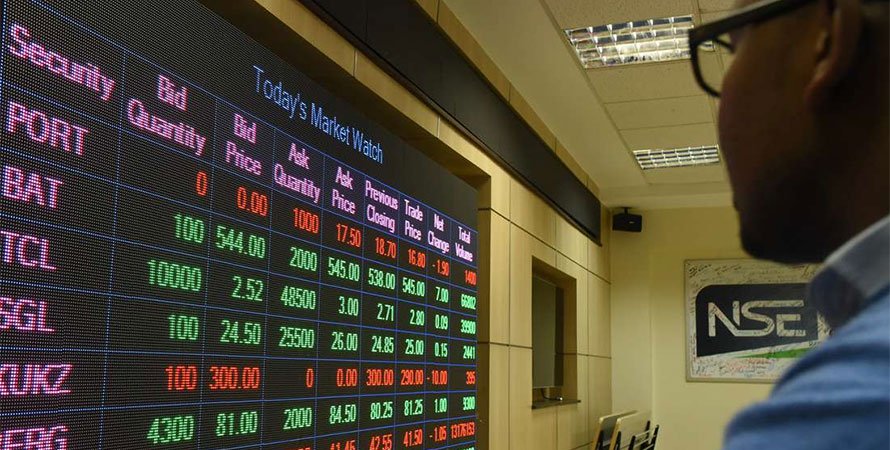The Nairobi Securities Exchange. FILE PHOTO | NMG Nairobi Securities Exchange (NSE) investors have used 6.52 billion shares as security for bank loans, exposing lenders to losses if the stocks plunge at the bourse.
Regulatory data indicate that the number of shares pledged for bank loans has increased 48 percent since March 2017 when 4.44 billion shares were attached.
This coincided with a period of reduced economic activity and when the cap on commercial lending rates existed, prompting banks to seek additional securities for loans.
The Capital Markets Authority (CMA) did not disclose the value of loans borrowed using shares or the worth of stocks attached to the bank debt.
“On data on the amount of loans secured against shares, the Authority has not been compiling this. We may consider incorporating the data in our future statistical bulletins,” the CMA said in response to Business Daily queries.
The pledged shares accounted for 6.6 percent of the total 98.78 billion equities that are listed on the NSE worth Sh1.98 trillion.
Analysts estimate that the shares used to secure the bank loans could top Sh120 billion.
The CMA data shows the number of NSE investors who had used their shares to borrow money rose by 3,971 or 10.2 percent from 39,112 in March 2019 to 43,083 in March this year. Under the practice, potential borrowers, called pledgors, use their listed shares as security for loans from banks, usually referred to as pledgees.
The Central Depository and Settlement Corporation (CDSC), which provides clearing, settlement and depository services for listed securities, keeps records of the shares pledged for bank loans.
The CDSC is also the custodian of the agreements between the bank and the NSE investor.
“The pledger (borrower) cannot access these shares unless the pledgee (bank) submits the appropriate pledge release instruction in accordance with CDSC procedures,” the CMA says.Once the lender completes a pledge form and gets CDSC clearance, the shares used for the borrowing are frozen and only released to the investor once the loan is cleared.The CDSC allows the pledgor to remain the shareholder of the pledged securities and enjoys dividends, if any, but cannot sell the shares.The stock-backed borrowing is viewed as a risky practice in the event of stock market plunge.Banks offer the loans at a discount to the shares’ prevailing market prices, but stocks can plunge below the minimum level set for the debt, exposing banks to risks.It is not clear how the dip in share […]
